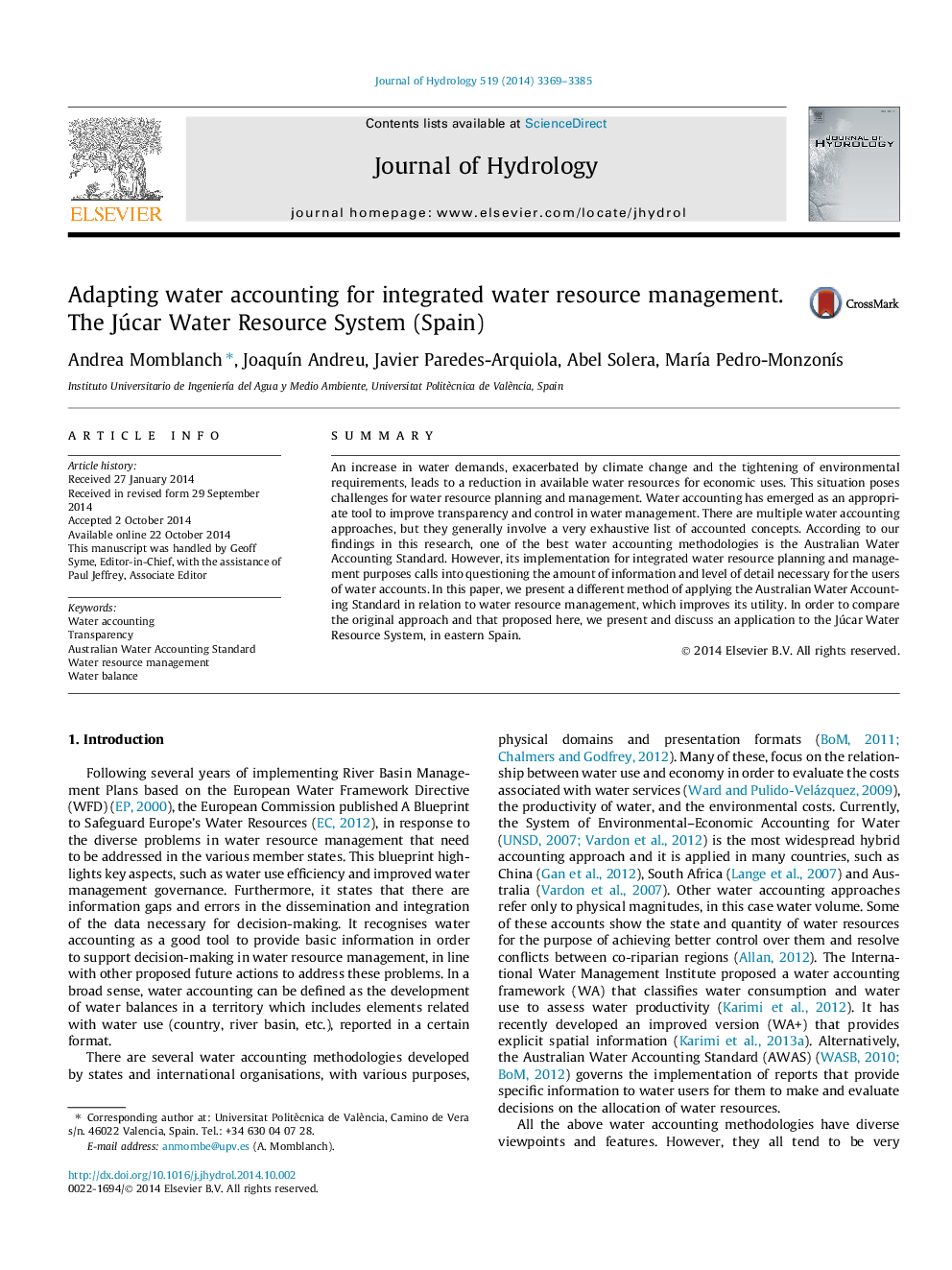| Article ID | Journal | Published Year | Pages | File Type |
|---|---|---|---|---|
| 6412244 | Journal of Hydrology | 2014 | 17 Pages |
â¢Water accounting is proposed as a support for water management in water resource systems.â¢AWAS original version transmits a complete hydrological description of a water entity.â¢Water resource management requires limiting the accounting concepts to the manageable elements.â¢Key aspects: selecting the accounting concepts, capturing real management practices and adjusting the domain.
SummaryAn increase in water demands, exacerbated by climate change and the tightening of environmental requirements, leads to a reduction in available water resources for economic uses. This situation poses challenges for water resource planning and management. Water accounting has emerged as an appropriate tool to improve transparency and control in water management. There are multiple water accounting approaches, but they generally involve a very exhaustive list of accounted concepts. According to our findings in this research, one of the best water accounting methodologies is the Australian Water Accounting Standard. However, its implementation for integrated water resource planning and management purposes calls into questioning the amount of information and level of detail necessary for the users of water accounts. In this paper, we present a different method of applying the Australian Water Accounting Standard in relation to water resource management, which improves its utility. In order to compare the original approach and that proposed here, we present and discuss an application to the Júcar Water Resource System, in eastern Spain.
